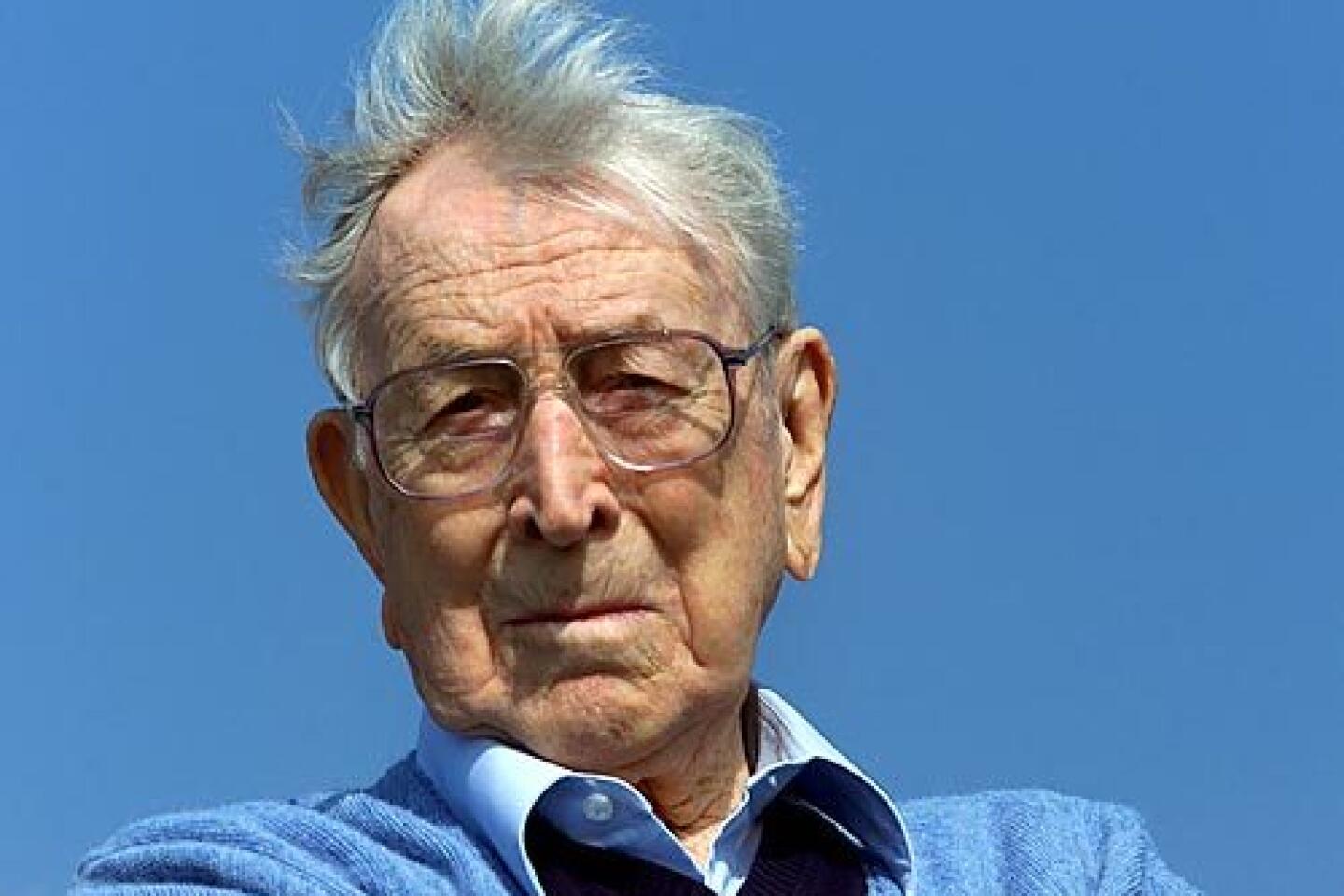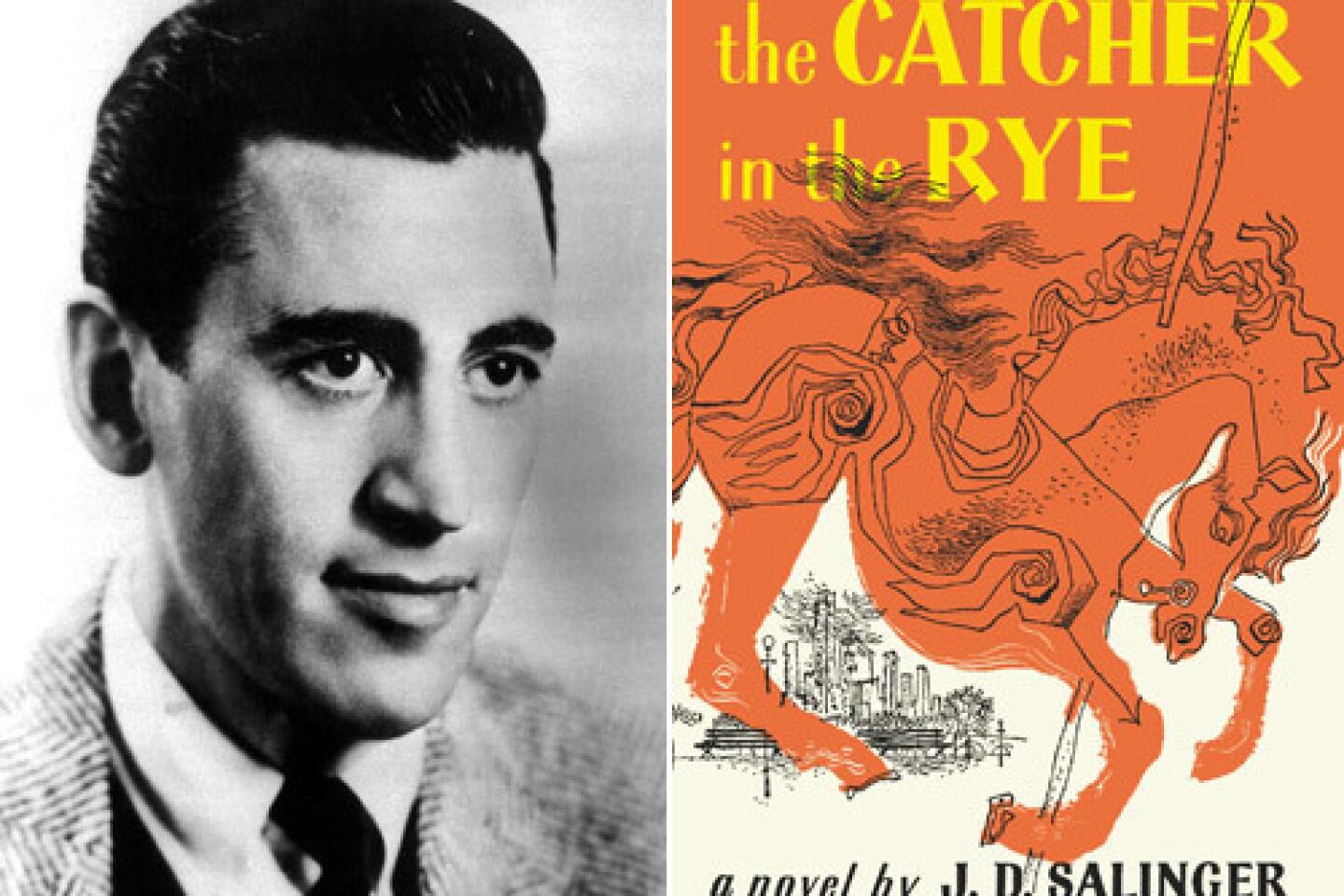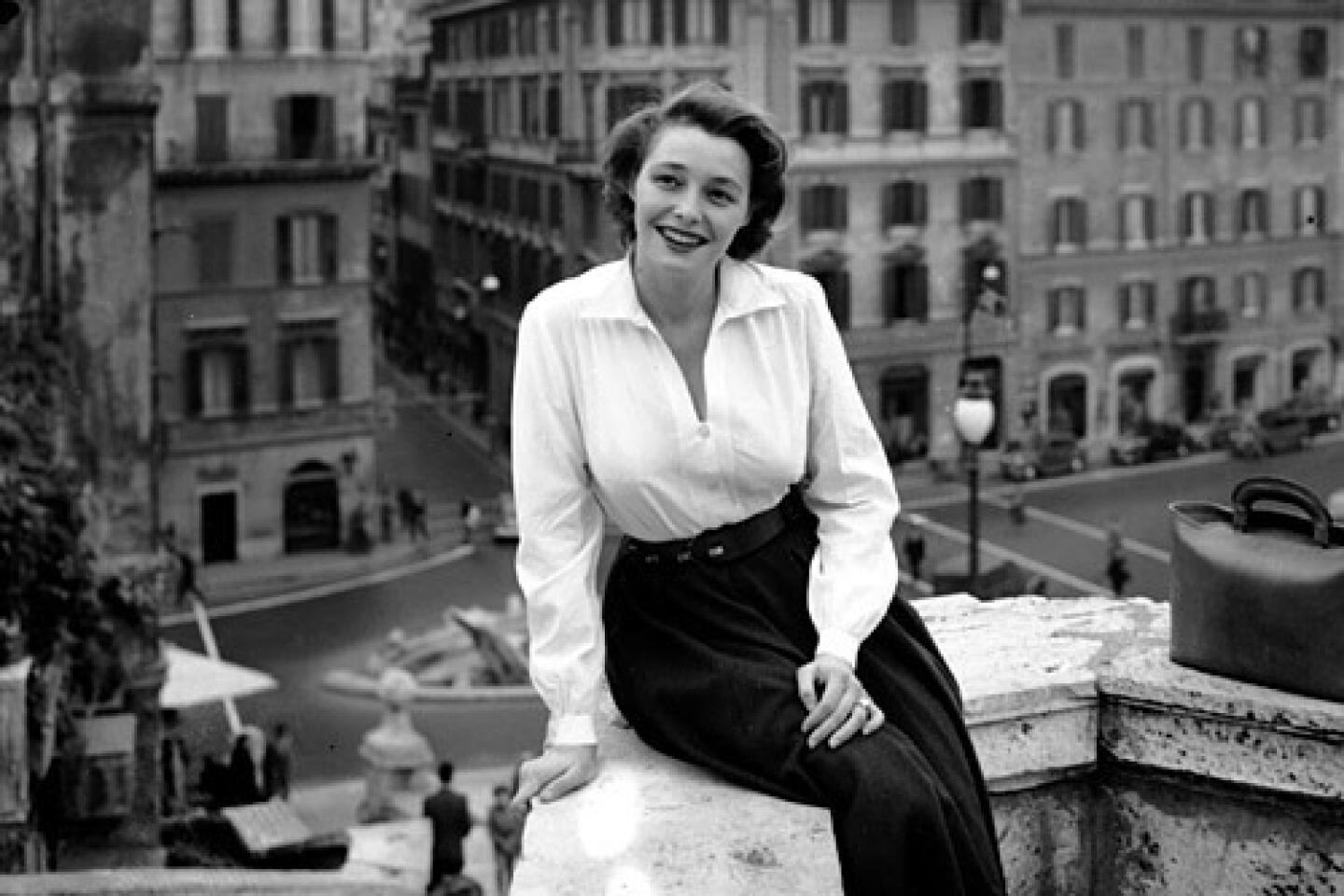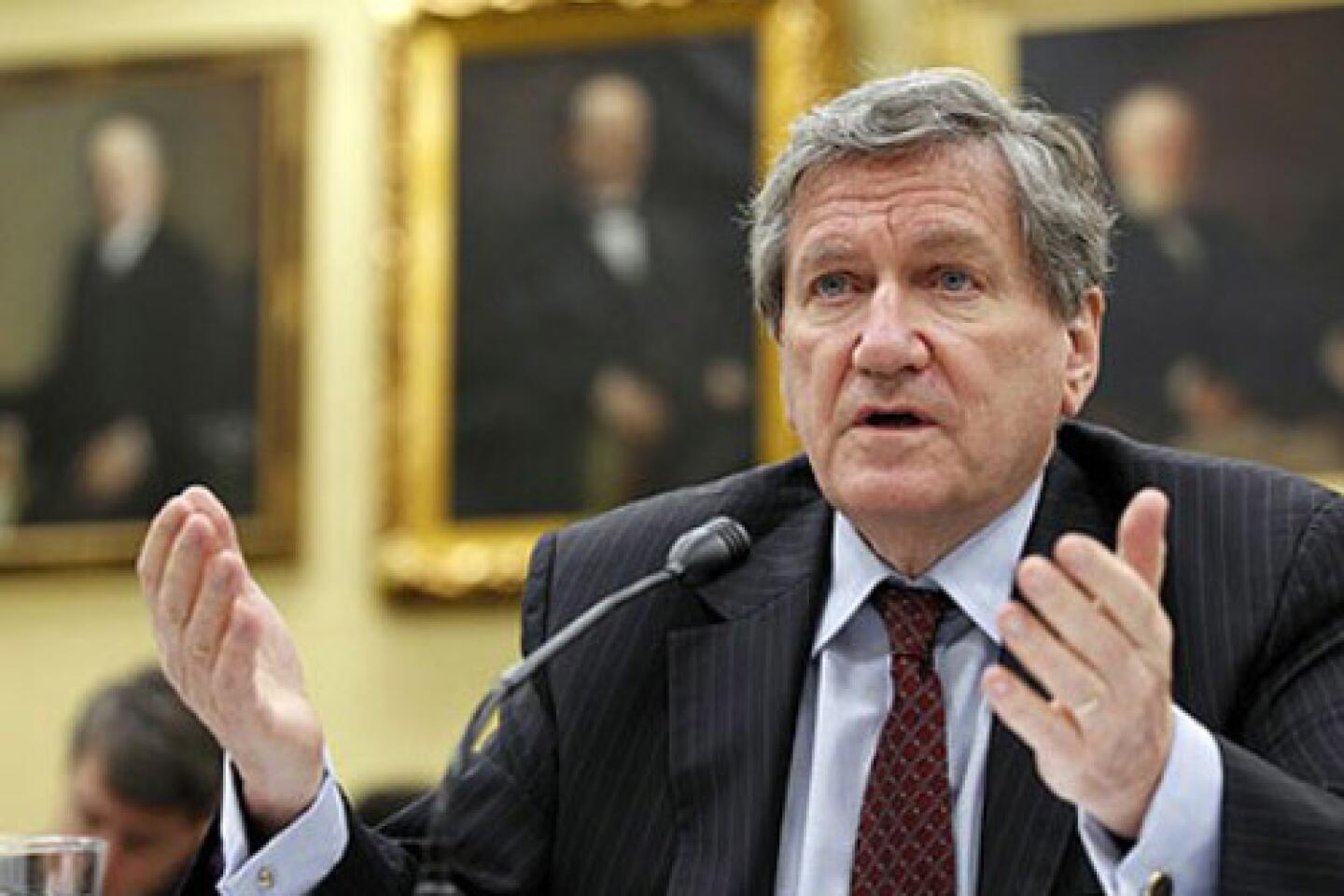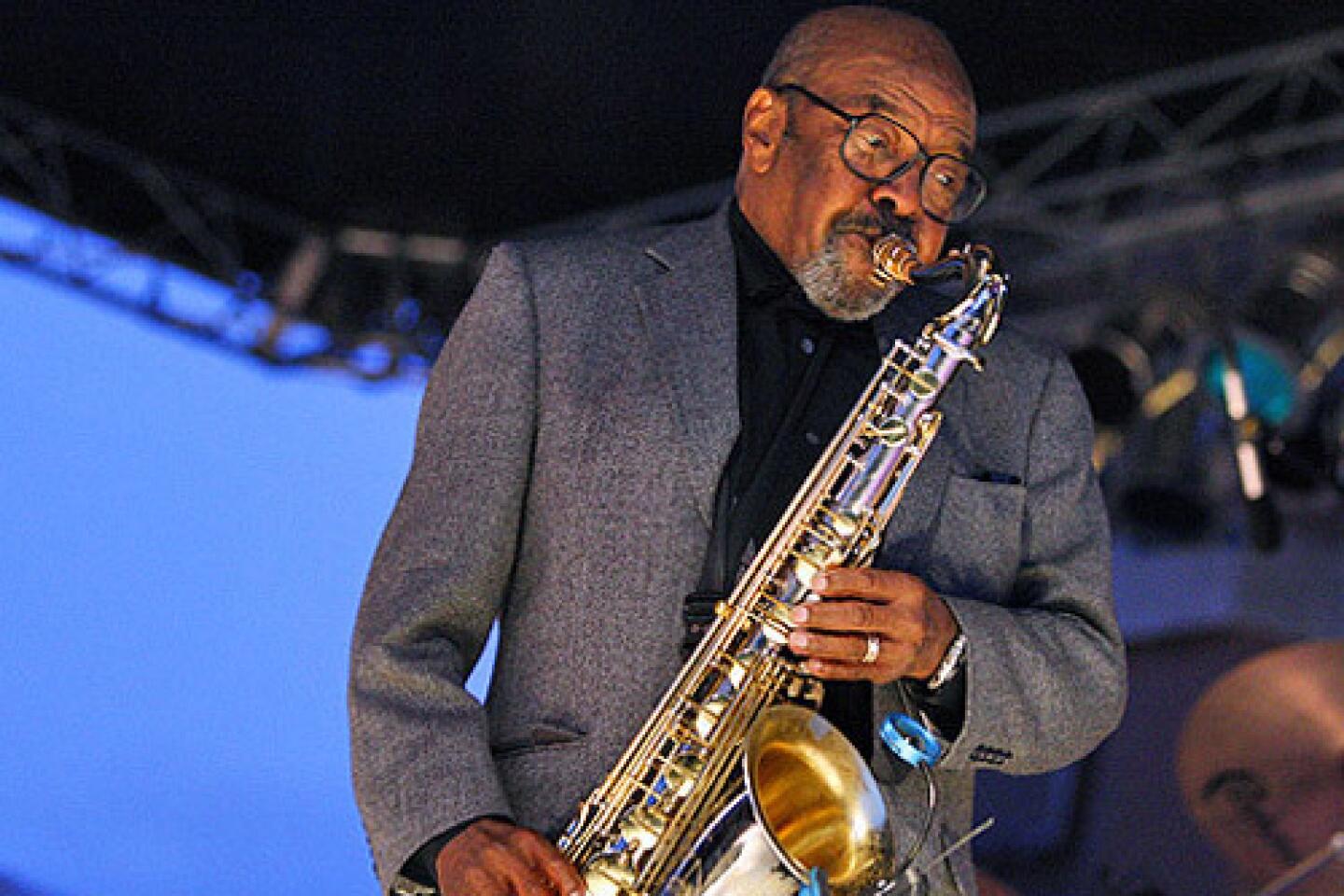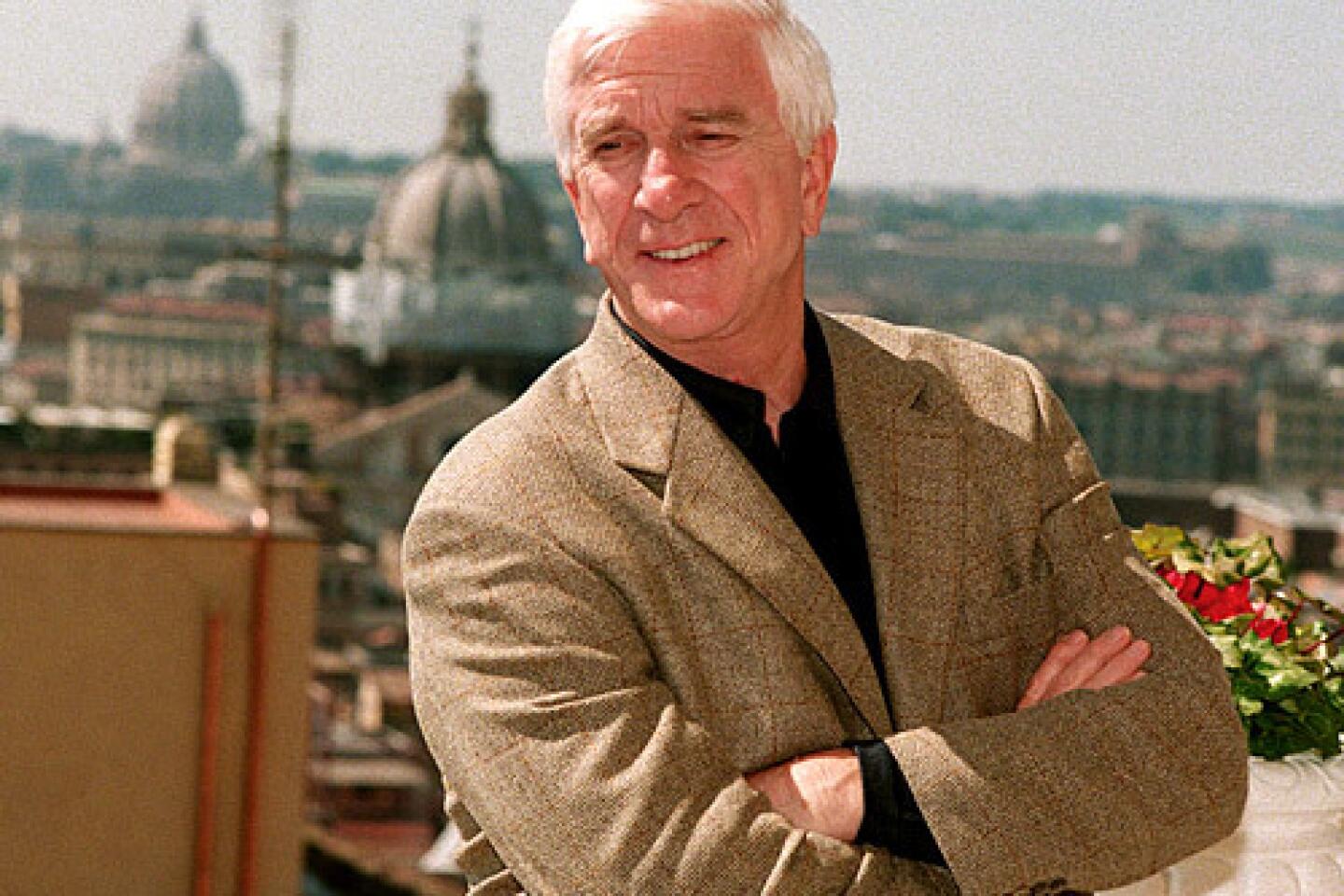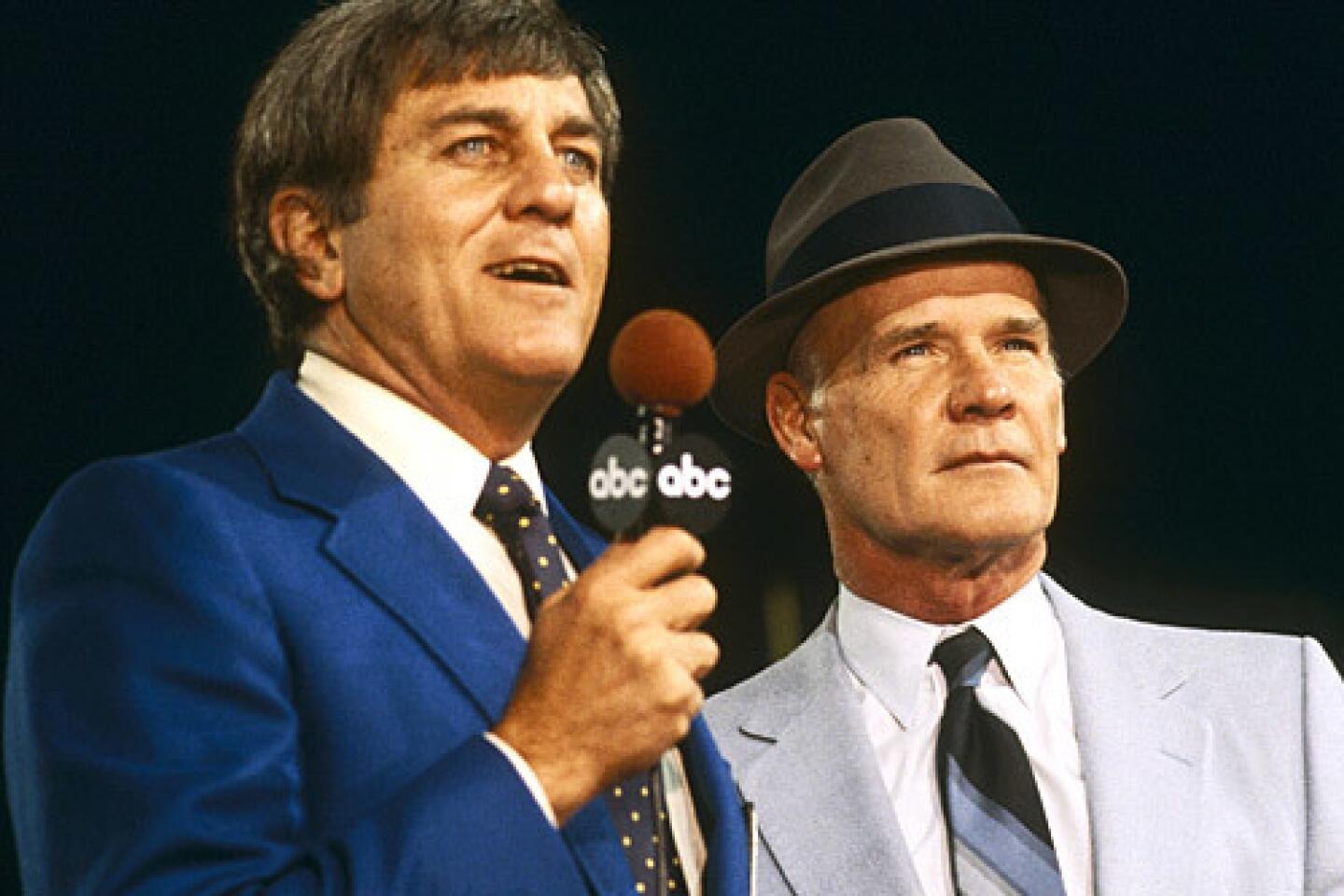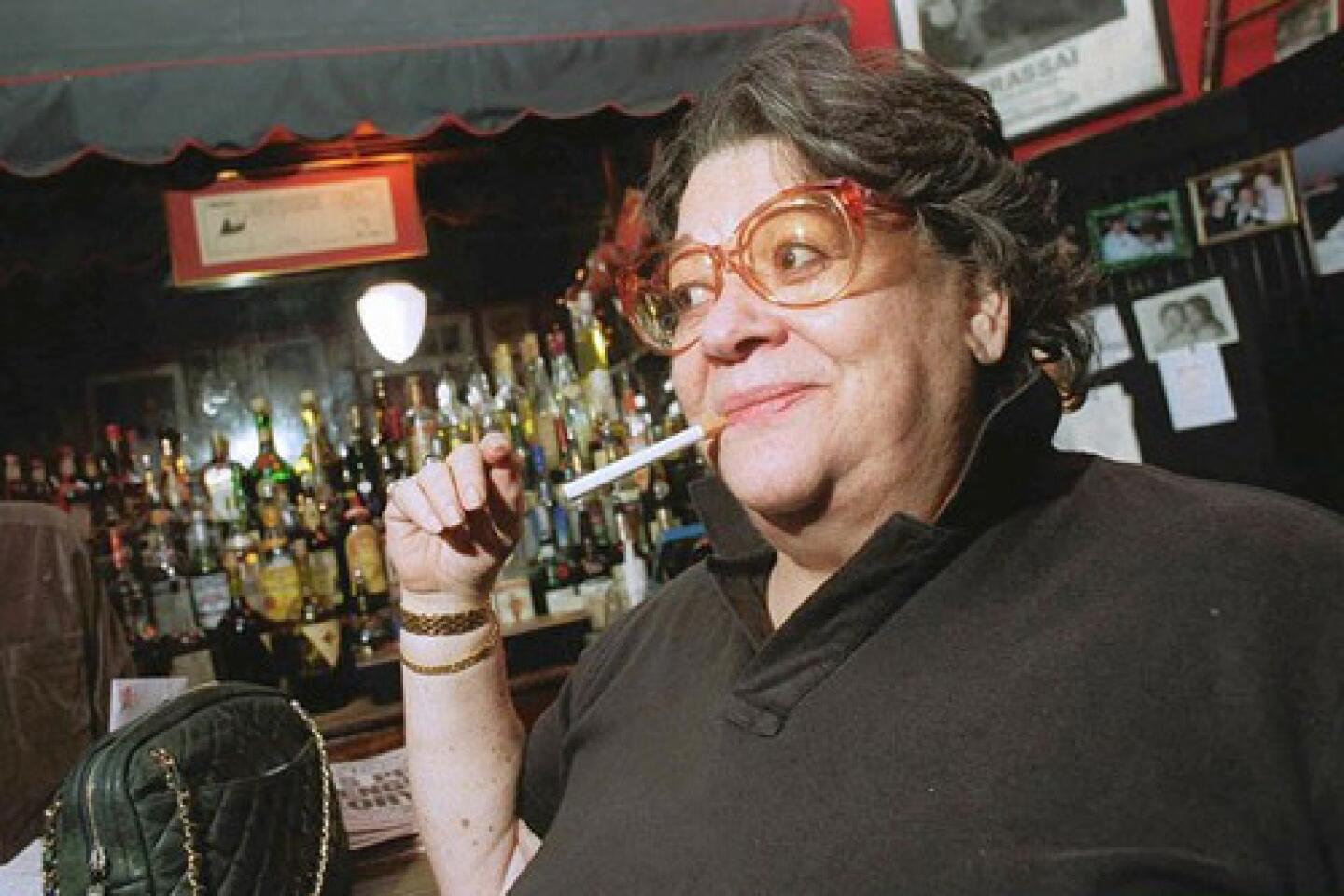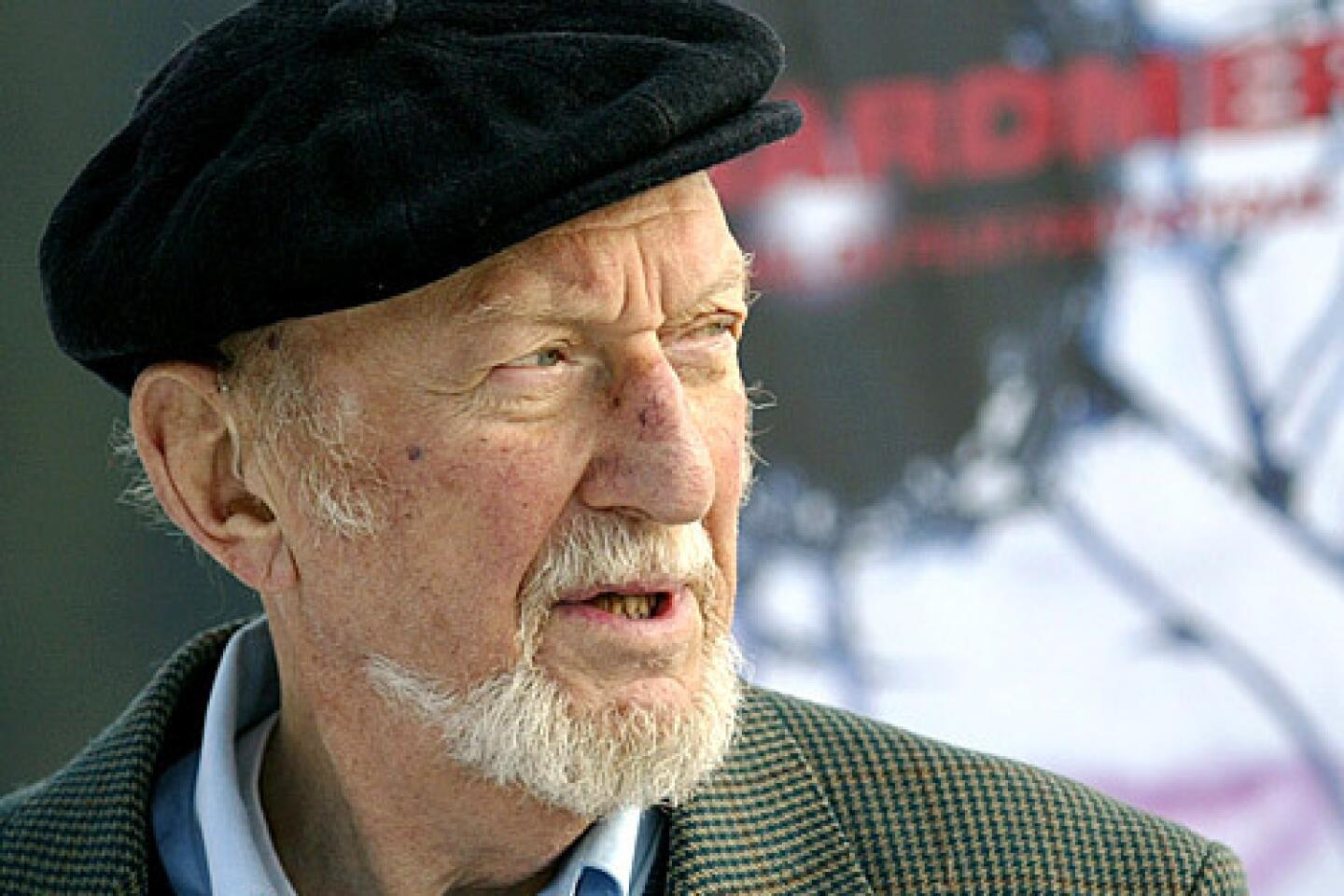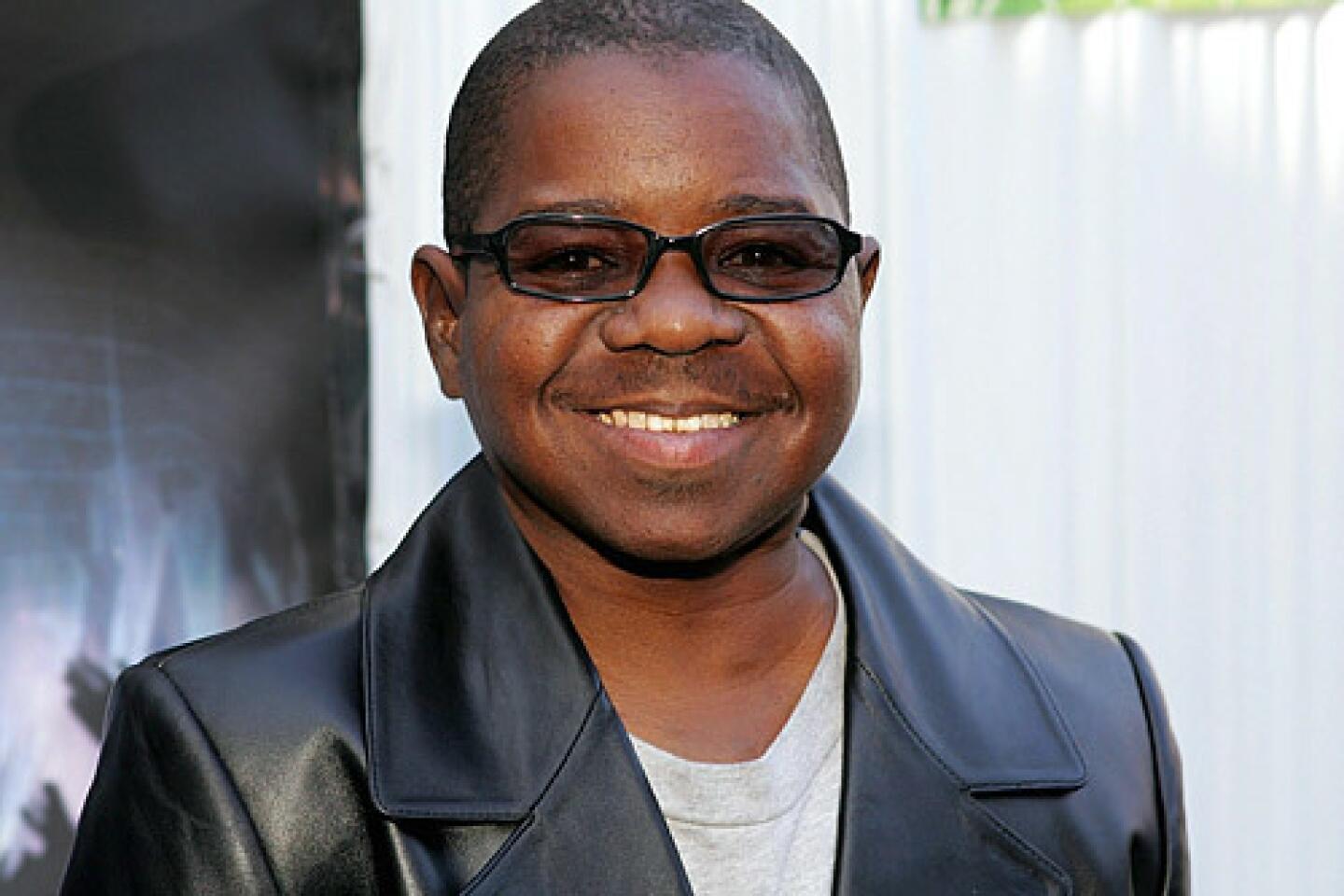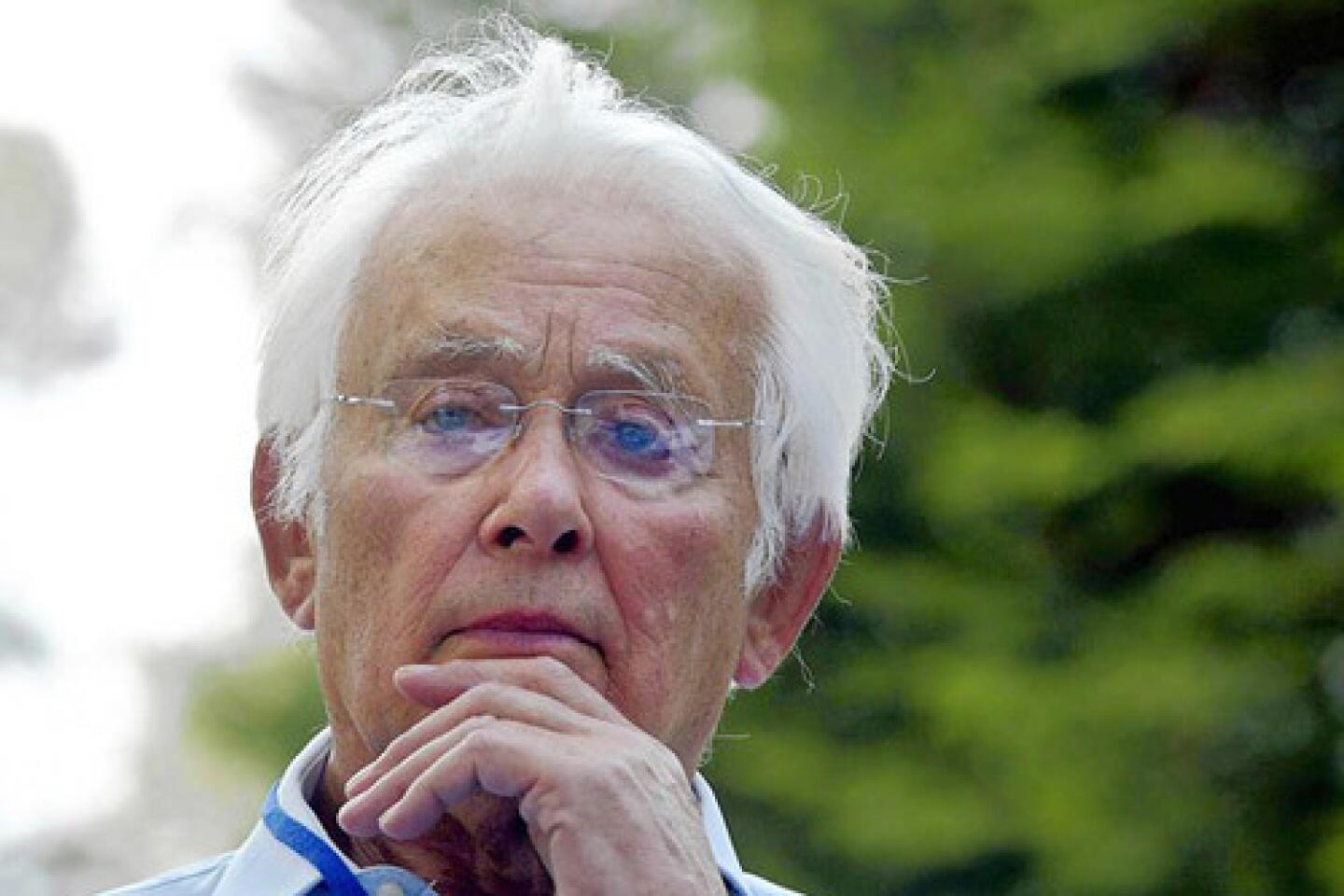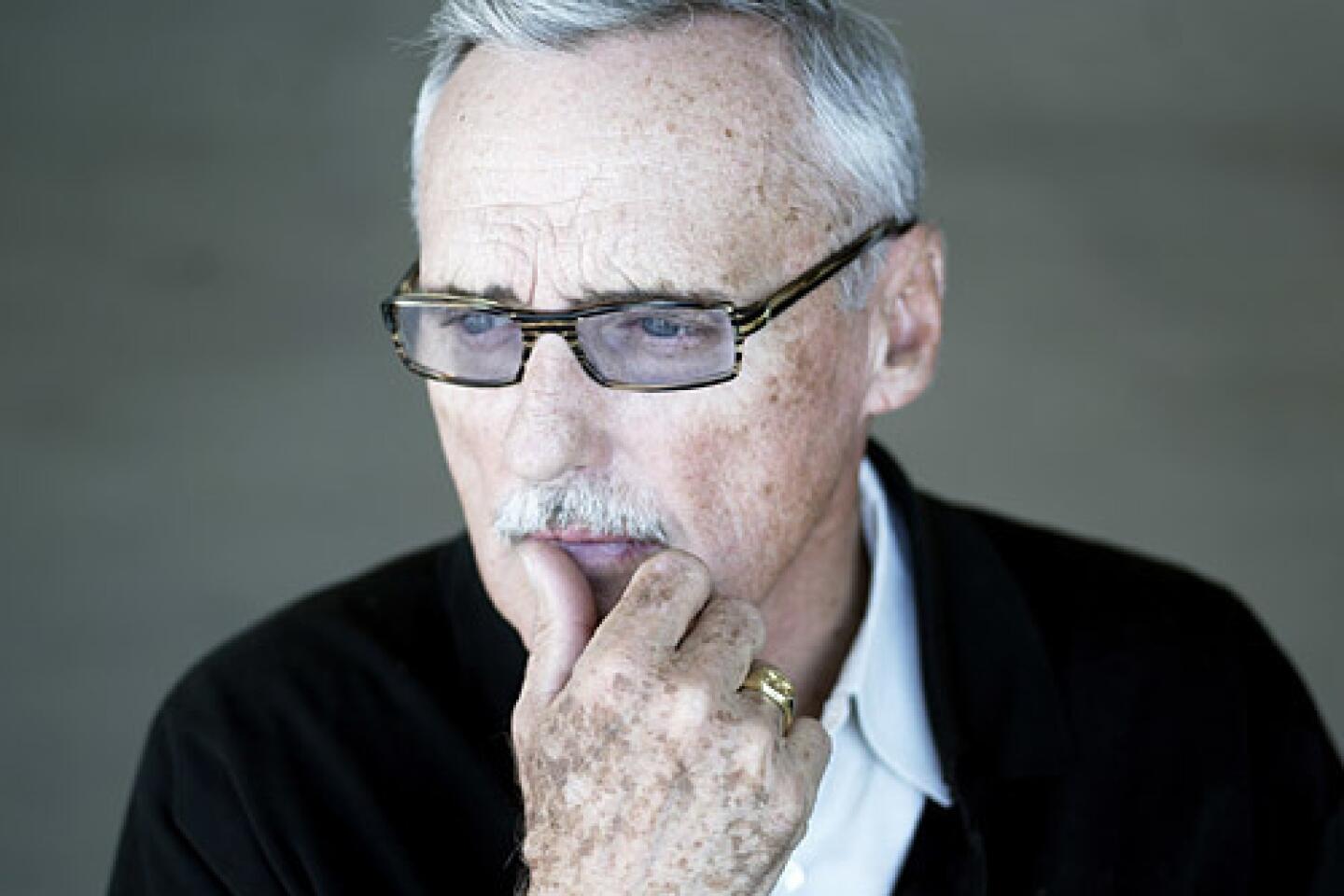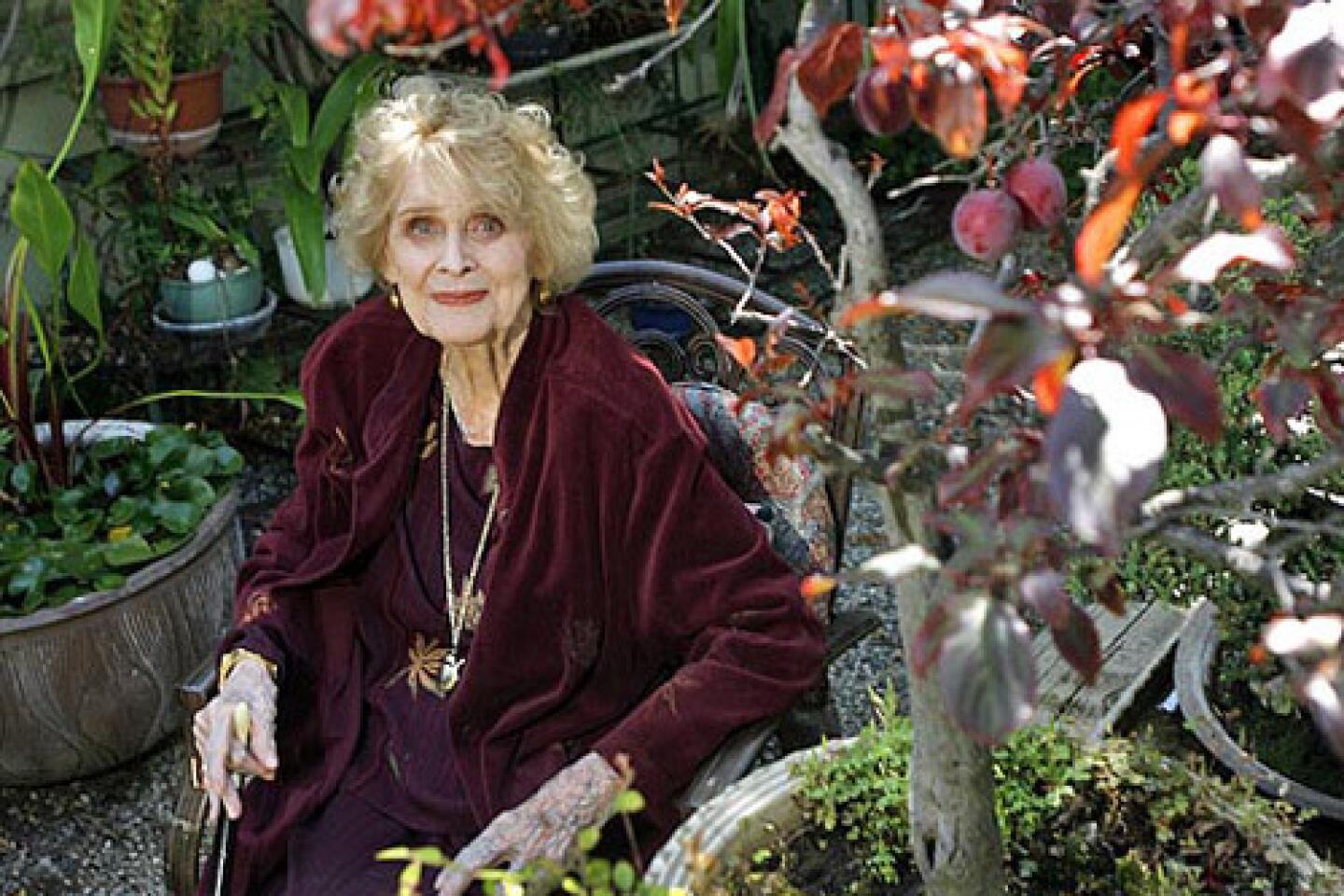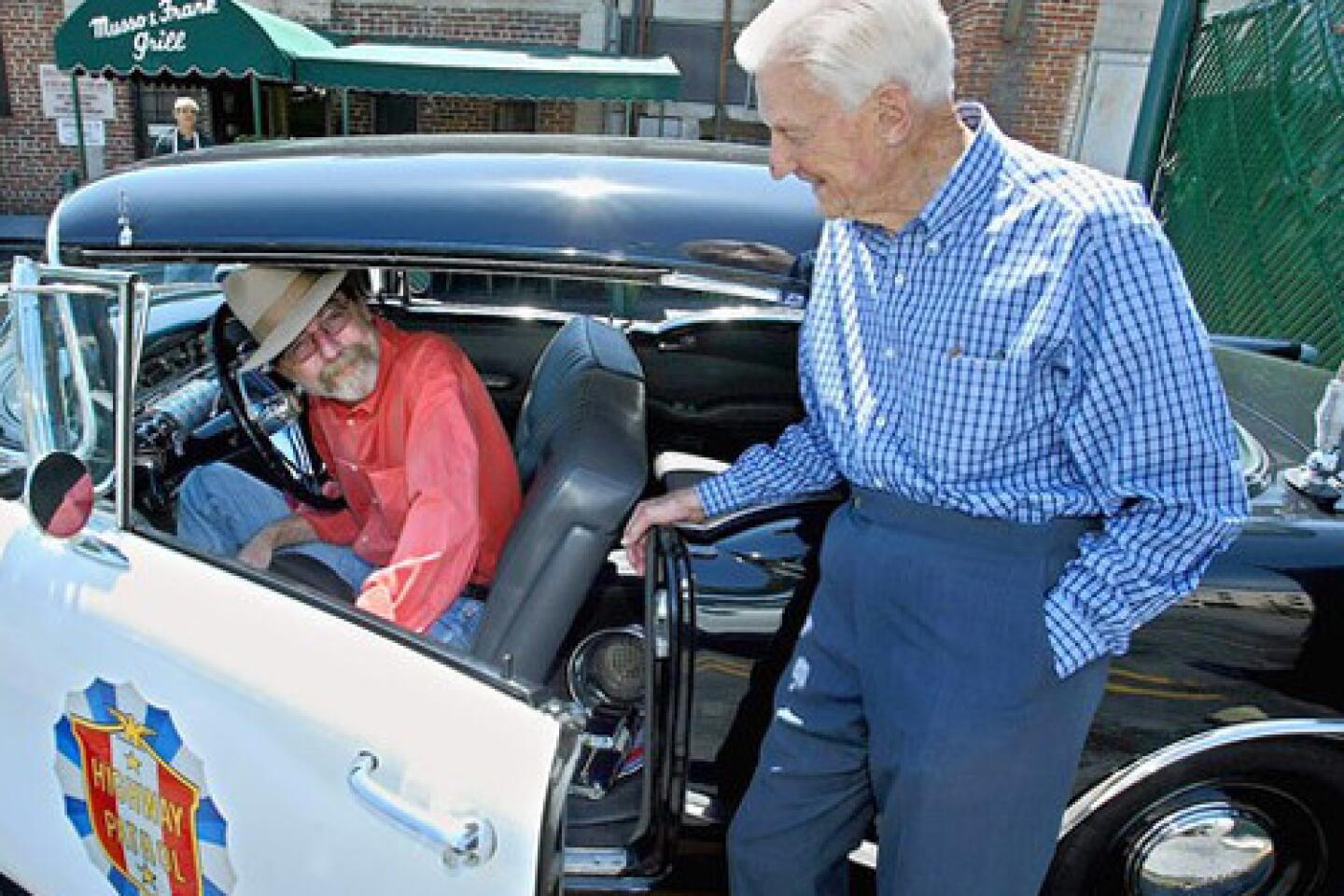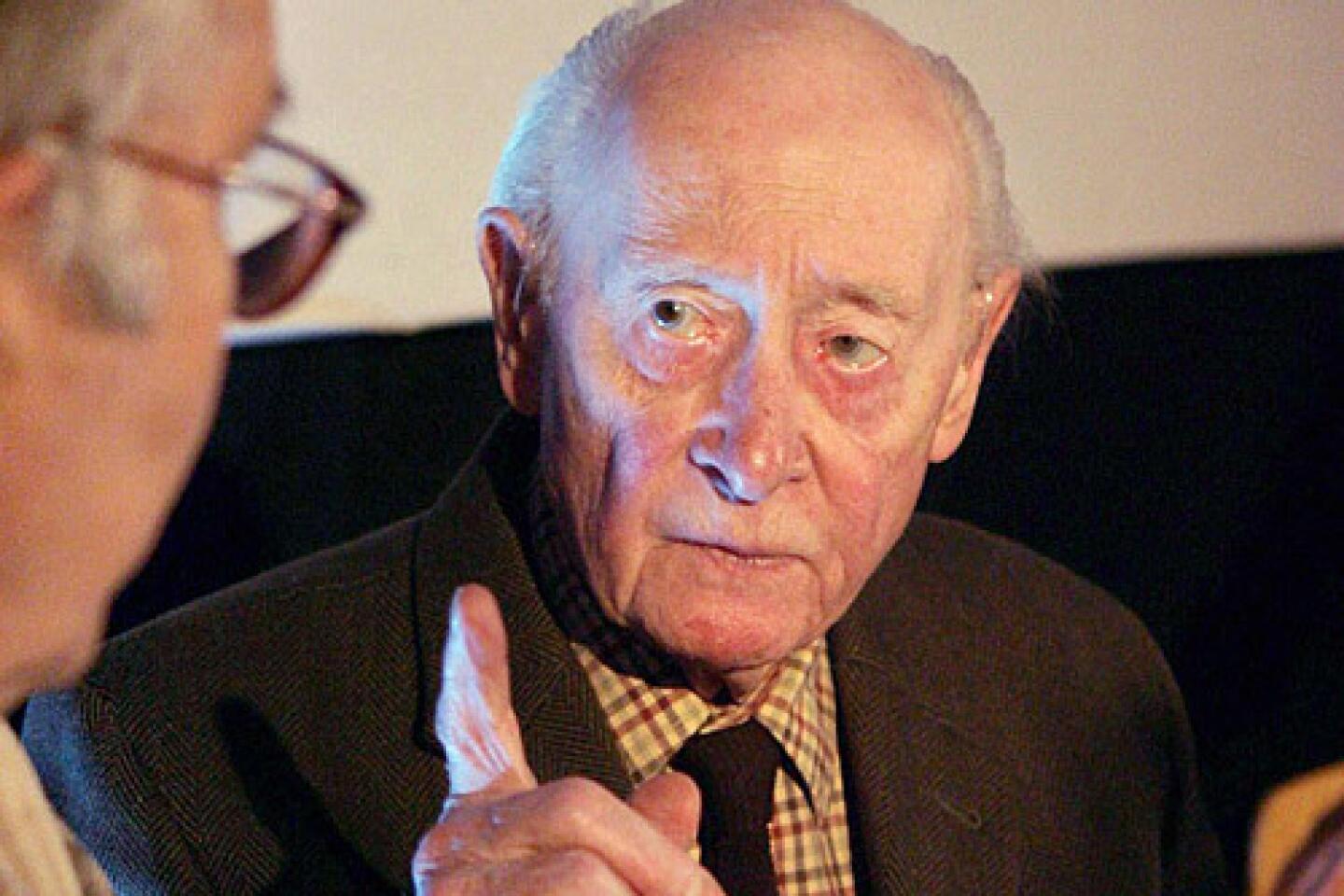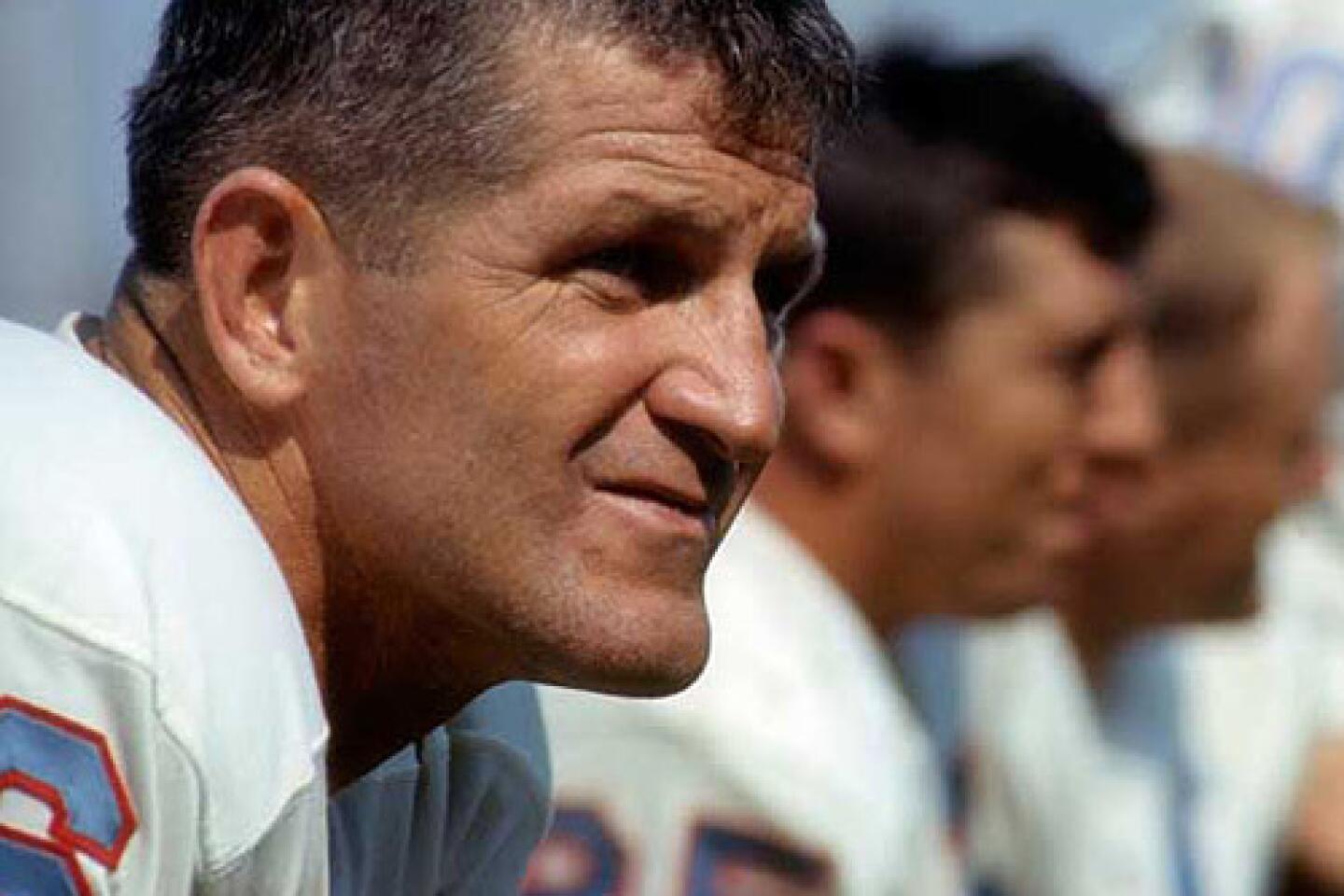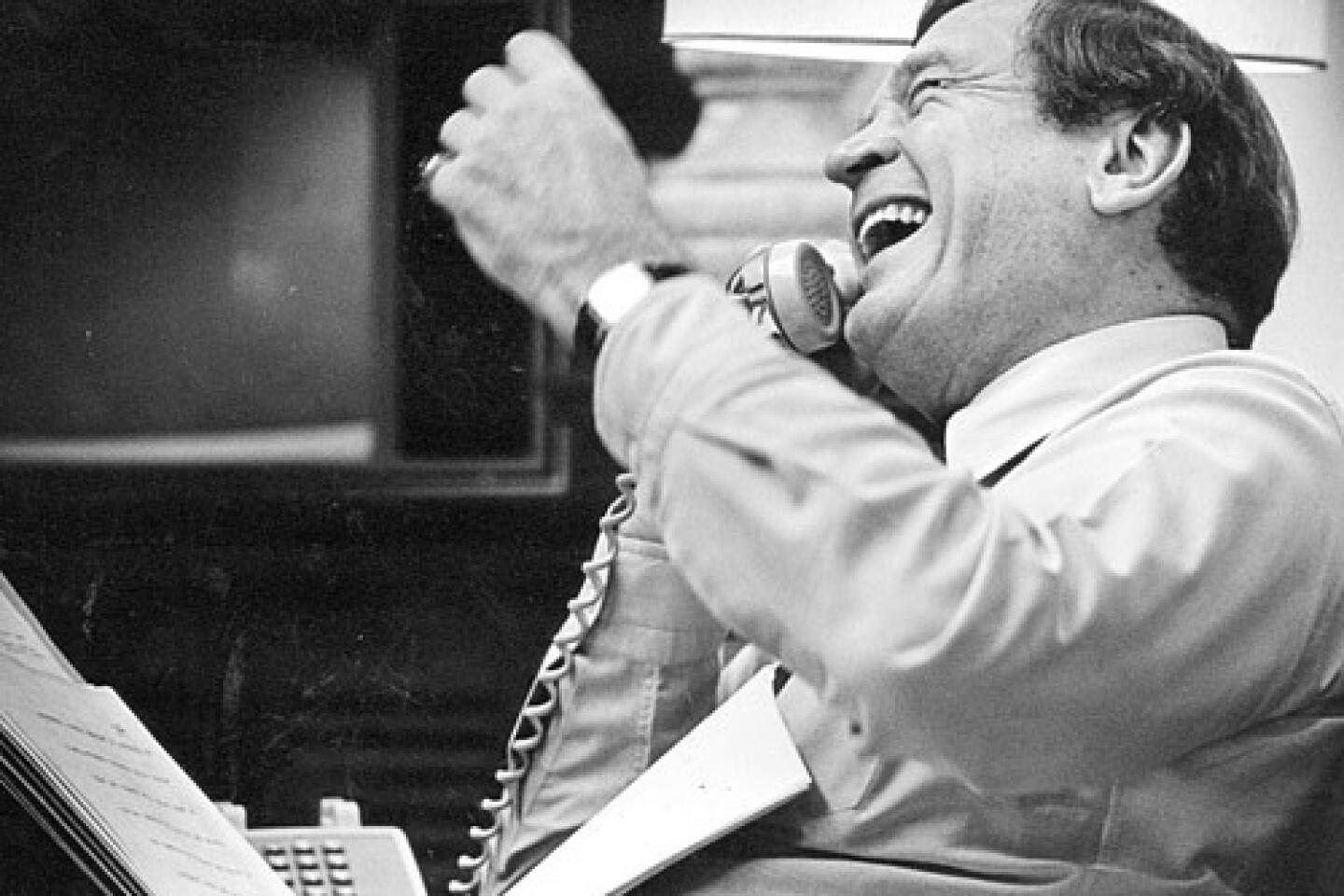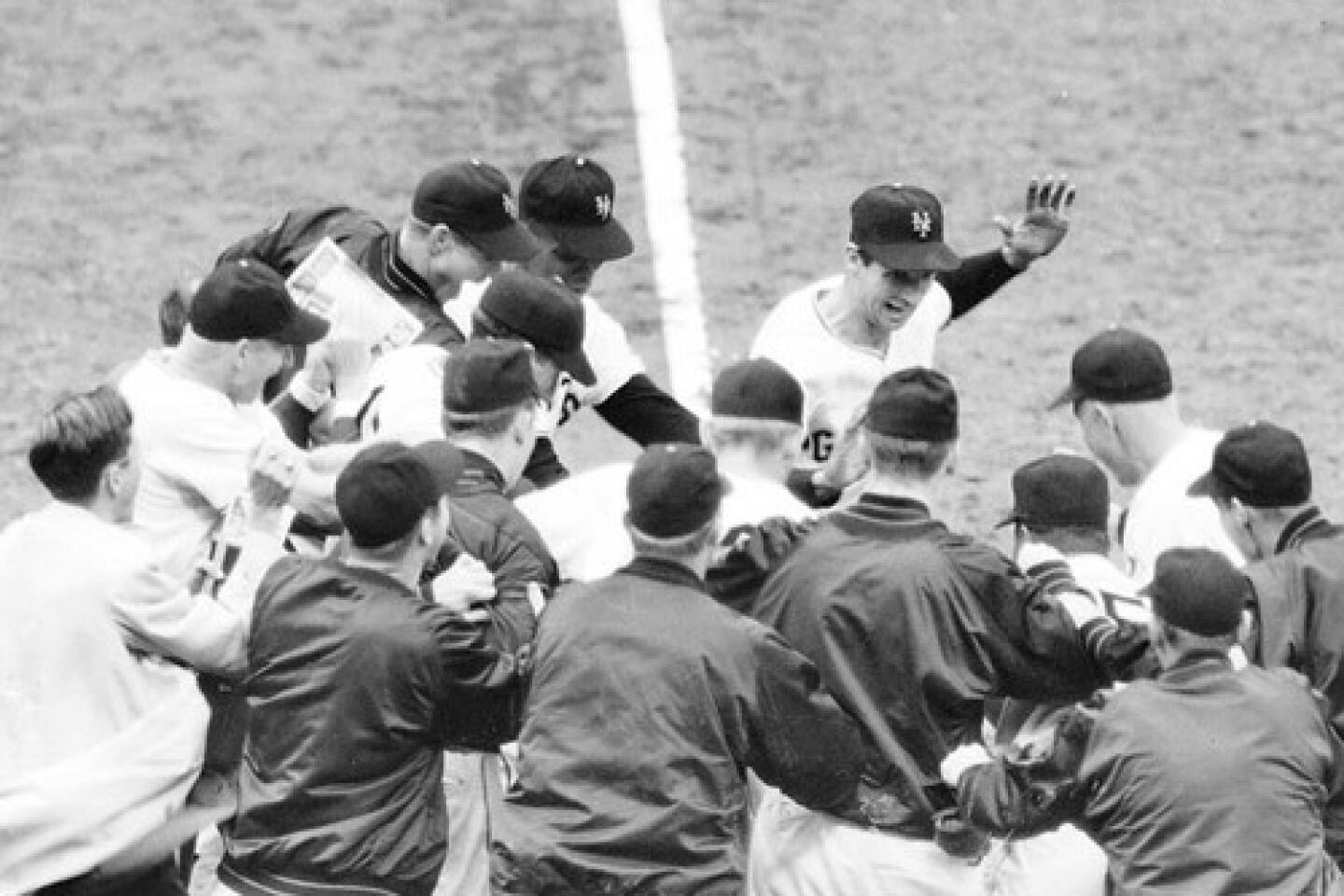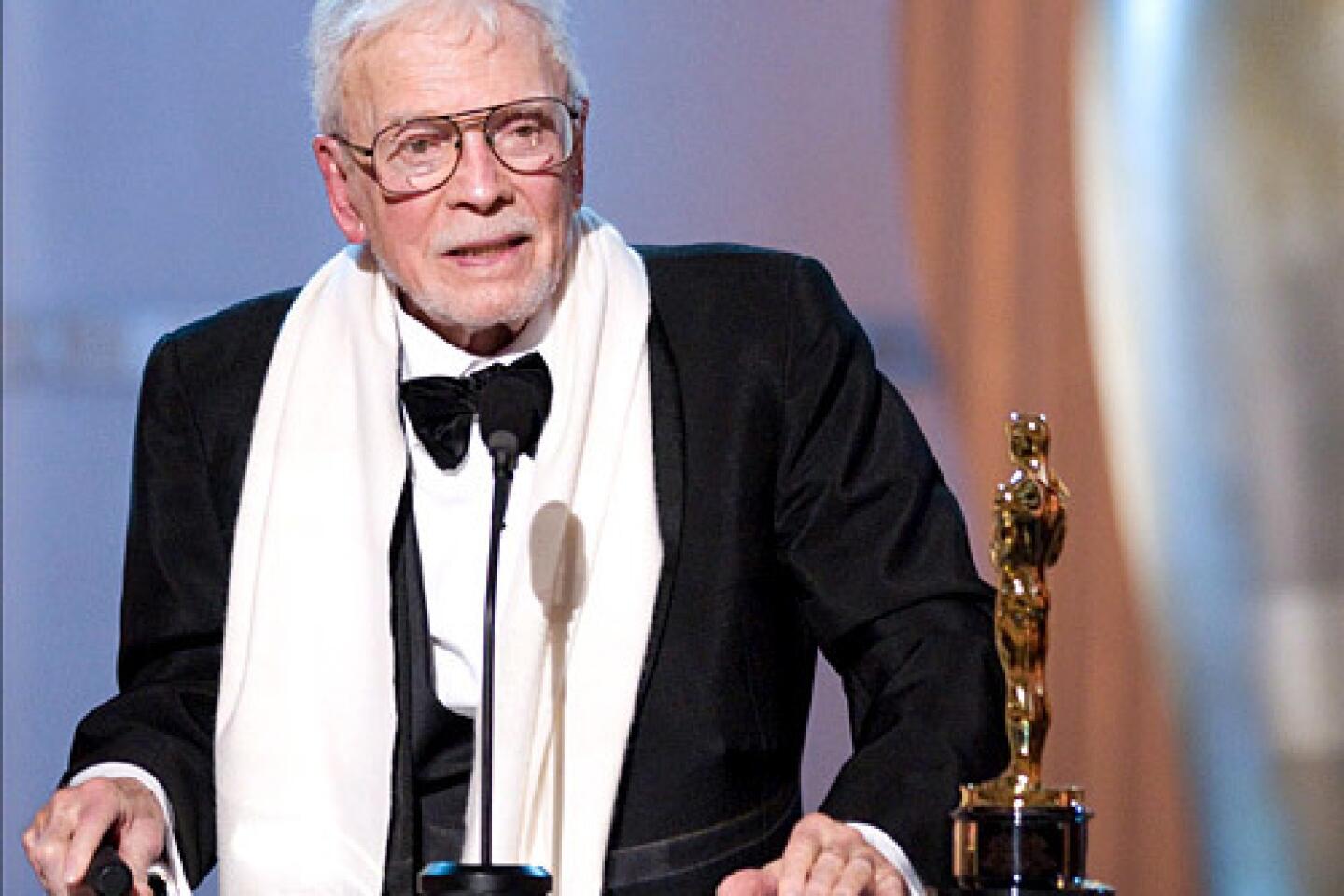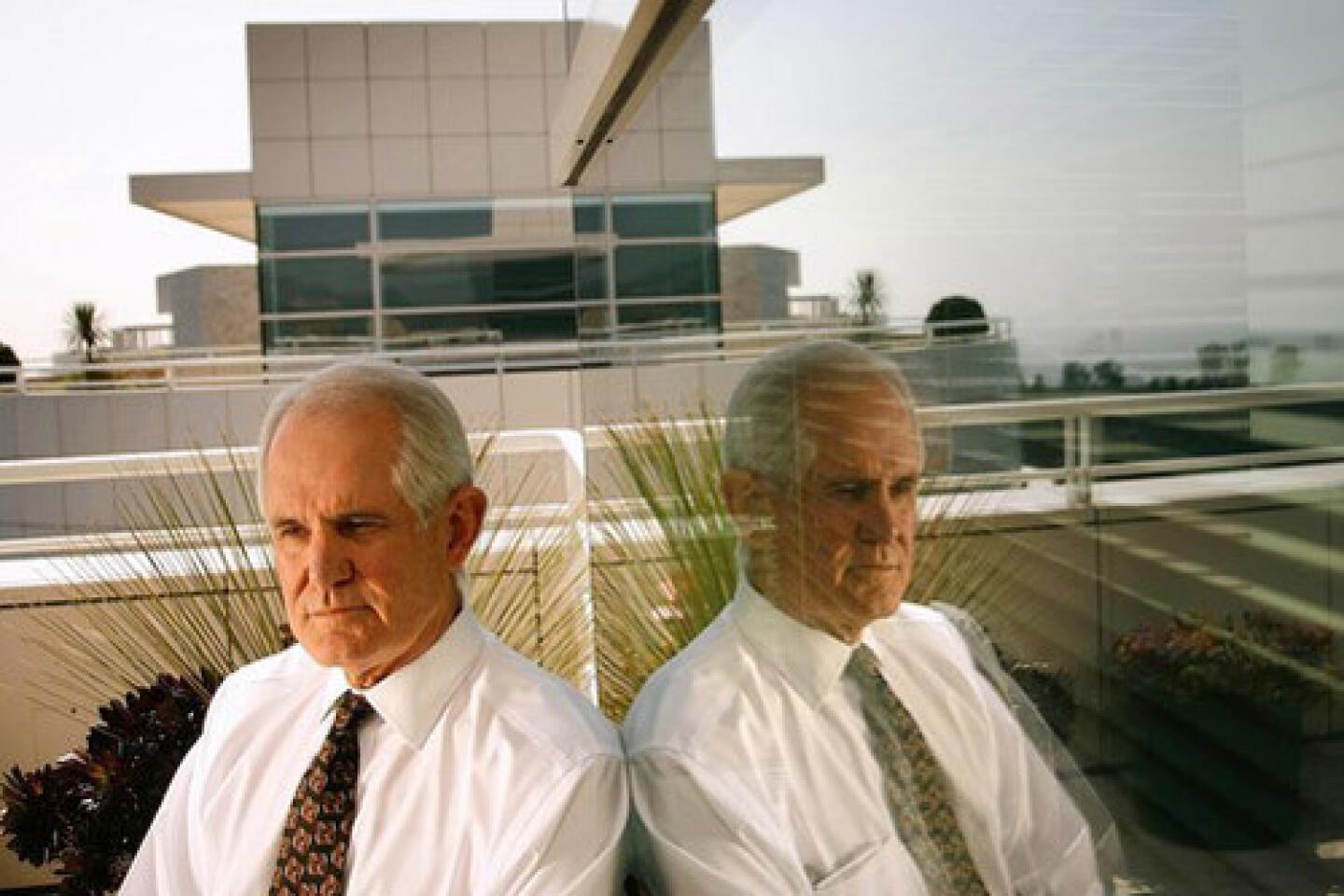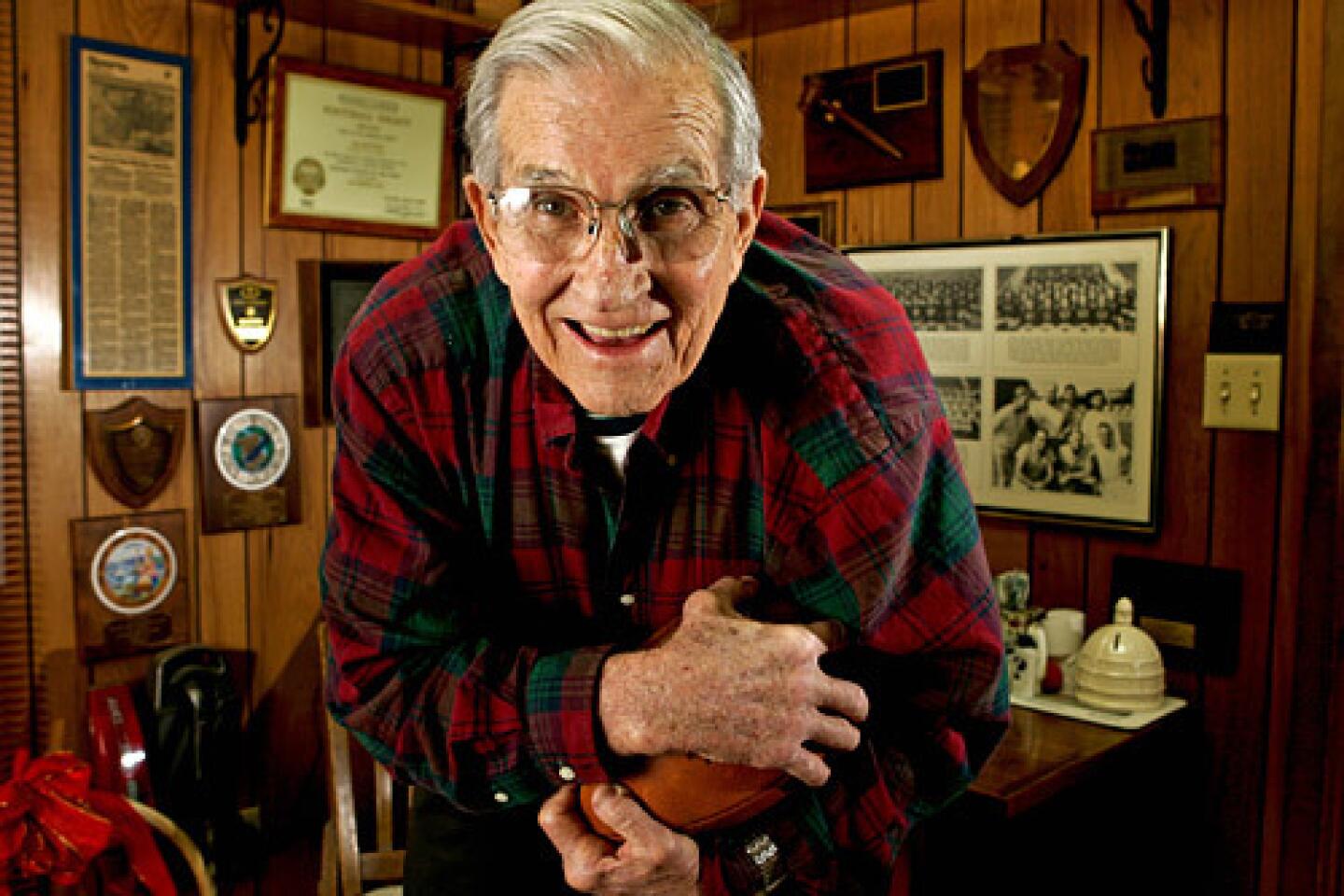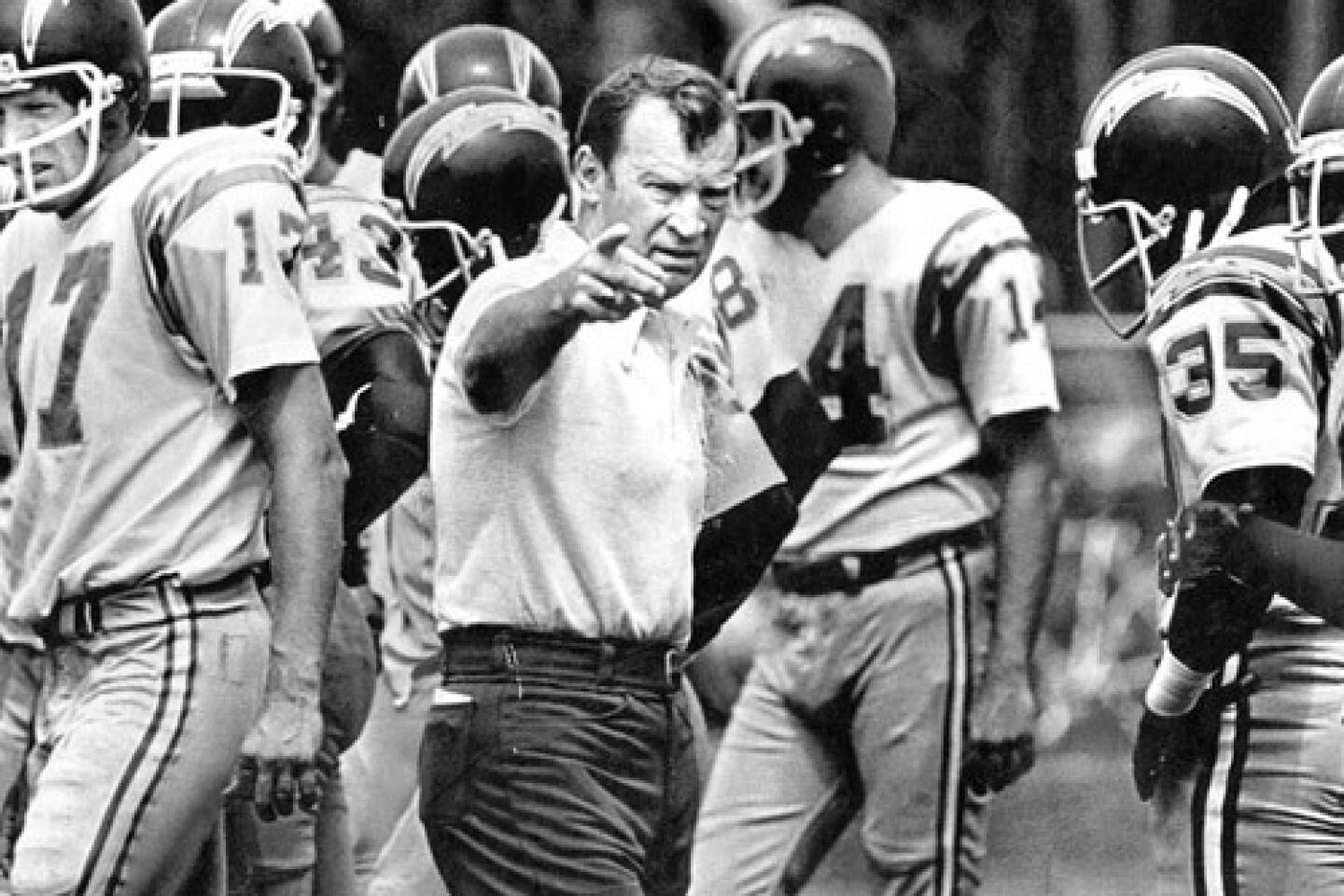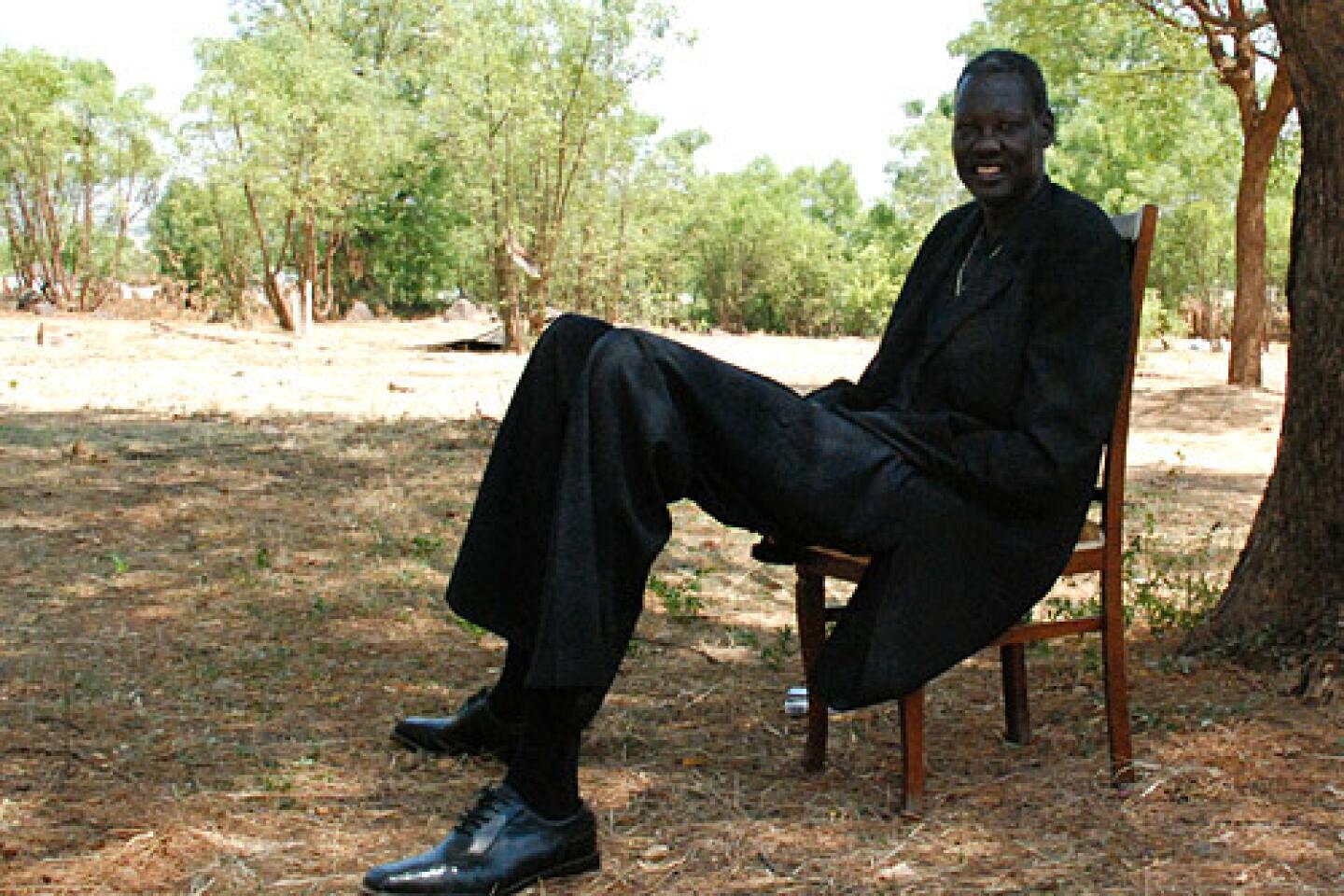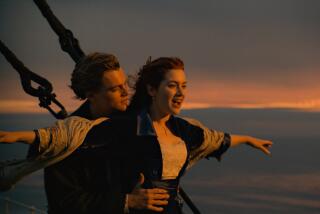Roy Ward Baker dies at 93; British film director
- Share via
Roy Ward Baker, the London-born director best known for his 1958 documentary-style feature film, “A Night to Remember,” about the sinking of the Titanic, has died. He was 93.
Baker died Tuesday at a London hospital, his son, Nicholas, told the Associated Press.
“ ‘A Night to Remember’ was considered the definitive film on the Titanic before Mr. Cameron got his hands on the subject,” said film critic Leonard Maltin, referring to “Titanic,” the 1997 romantic epic by James Cameron.
“Even the Hollywood movie has not negated the value of the earlier film,” Maltin told The Times on Thursday. Baker “was interested in making the characters and events seem credible. It’s quite good, dramatically very effective and moving.”
In its review of “A Night to Remember,” Newsweek said that the film, “using no star names familiar to Americans, simply sets forth the facts of the case, letting its own special drama speak for itself.”
For special effects, Baker had a 250-foot section of the ship built at a 10-degree angle for large crowd scenes. A smaller, 48-foot model was used for long shots. Sometimes he made the Titanic seem to tip with images as simple as a buffet cart rolling across an empty room, the St. Petersburg Times reported in 1998.
Born Roy Baker in 1916, he was a schoolboy in the era of talkies and grew up wanting to work in film. He adopted Ward as a middle name after he became a filmmaker.
He started his career a Gainsborough Studios, where he worked his way up from tea boy to Alfred Hitchcock’s assistant director on “The Lady Vanishes” (1938).
During World War II, Baker served in a British Army Kinematograph Unit. Afterward, he directed several documentaries before taking on his first feature film, the psychological melodrama “The October Man” (1947).
Darryl F. Zanuck lured him to Hollywood and 20th Century Fox, where he directed Marilyn Monroe in one of her first leading roles, as a baby-sitter in “Don’t Bother to Knock” (1952).
“A very ordinary little picture, but it did its job and a lot of people liked it,” Baker told the Guardian of London in 2000. “Films are a mass form of expression. It’s no use making them for 10 friends.”
During his few years in the United States, Baker made the 1953 grim thriller “Inferno,” the first 3-D film from 20th Century Fox.
In an introduction to “Inferno” that was shown when the film was screened in Los Angeles several years ago, Baker said that Zanuck had been “annoyed there wasn’t more 3-D in it,” Maltin said.
“He held back on gimmicky effects because he wanted to build a crescendo at the film’s climax,” Maltin said. “It worked.”
Back in England, Baker made such well-regarded films as “The One That Got Away” (1957) and “Quatermass and the Pit” (1968).
He also developed a following among horror fans for a series of movies that included “The Vampire Lovers” (1970) and “The Vault of Horror” (1973).
Later in his career, he was primarily a director of television series that included overseeing several episodes of the 1960s adventure series “The Avengers.”
Information on survivors, besides his son, was not available.
More to Read
Start your day right
Sign up for Essential California for the L.A. Times biggest news, features and recommendations in your inbox six days a week.
You may occasionally receive promotional content from the Los Angeles Times.
